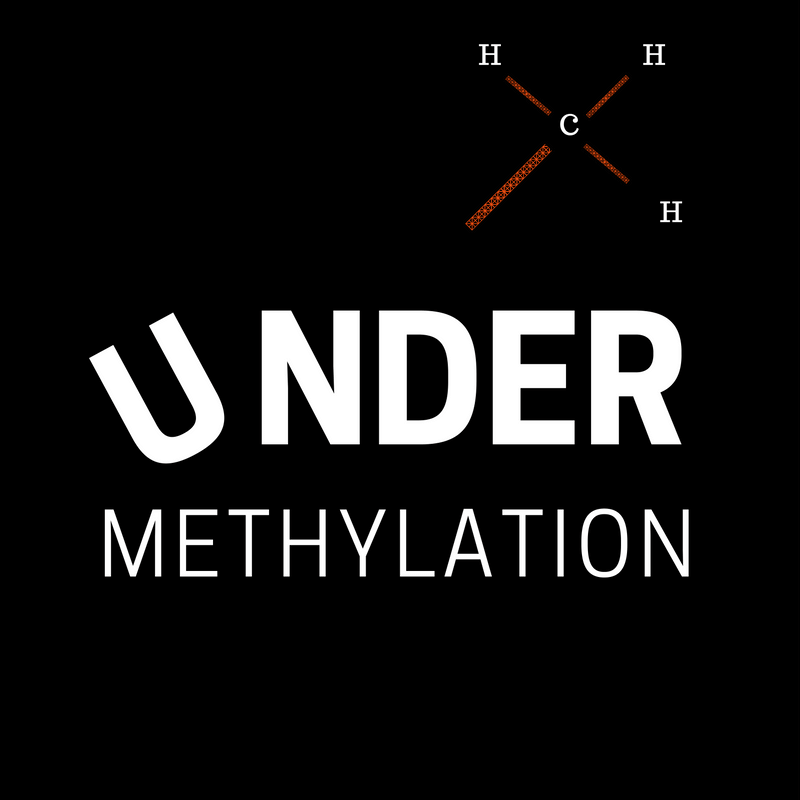Undermethylation Diet Alternative to the GAPS diet….
“All disease begins in the gut.” — Hippocrates. This is not 100% true for all diseases but it is fairly accurate for most chronic metabolic diseases.
There exists an intimate connection between your gut health and your overall health and wellbeing, so intimate that the gut is now being referred to as the second brain. Your gut and brain are physically and emotionally connected.
Only about 10% of the cells in the human body are human. The other 90% of the cells in your body belong to other living creatures; these are single celled microbes living in the human gut. The human gut comprises about 34,000+ species of microbes and in a healthy person, the beneficial microbes outnumber the pathogenic microbes by 4:1.
Now to really add a can of helminths, there is a great deal of literature that supports a high sugar/high fat diet for cellular energy and nourishment. Nutrition is a funny one and many professionals will have alternative views depending on which side of the physiology coin they are looking from. There seems to be hundreds of symptoms relating to “gut issues”, but it is worth looking at the origin first – if the cells aren’t fuelled properly then you can guarantee problems assimilating and digesting foods.
Without proper digestion, you can’t have good health, no matter what you are eating. Your health is the summation of the foods your body is capable of digesting, not “what you eat”. Anytime you eat food that exceeds your body’s ability to digest, those foods end up working against you.
Good healthy gut bacteria:
Support the immune system
Help you create vitamins, absorb vitamins & minerals
Regulate hormones
Digest and metabolise your food
Get rid of toxins
Make you calm, happy and focussed
Support cellular energy and health
include pre- and probiotic foods such as fermented foods and beverages.
You can use meditation, exercise
Drinking plenty of clean mineralised water
Remove highly processed, non-foods
When you eat foods that you are allergic or sensitive to, they activate your stress response which reduces your digestive juices and lessens both your absorption and digestion of nutrients.
Nutrient dense foods that are easy to digest and have a high chance of giving your cells energy and support include:
Ripe fruit
Well cooked root vegetables (carrot, beetroot, turnip, parsnip)
Well cooked tubers (yam, potato, sweet potato, taro, cassava)
Well cooked squashes (pumpkin, zucchini, yellow squash)
Saturated fats (such as organic and pastured butter, egg yolks, ghee and coconut oil)
Organic (preferably raw) cheeses, full fat yogurt
Bone broth, fish, gelatin and small amounts of muscle meats
The right kinds of sugars support an efficient metabolism. Good sugars from ripe fruits, the kind of juices that you squeeze yourself, wild honey, maple syrup, and a little bit of organic, non-GMO sugar.
Foods which are commonly counterproductive to digestion, which are often suggested to include in a healthy diet include:
Nuts, Seeds and Legumes
Nuts, seeds and legumes are very hard to digest, being high in phytates, enzyme inhibitors and mineral blockers, making it difficult to reap the nutrition inside them. Nuts are also high in polyunsaturated fats, which can inhibit digestion. Use nuts sparingly and try the old “activation” trick – soak nuts and seeds overnight, rinse in the morning and dry in the sun / oven.
Raw Greens and Raw Green Smoothies!
Leafy greens include spinach, kale, lettuce, cabbage, collards and chard). Raw leafy greens are pretty darn hard to digest. Kale has been the world’s “superfood” for a few years now, but it is doing more harm than good? Humans do not have 4 stomachs like cows or goats have. Cellulose needs to be broken down to receive the nutrients found in these vegetables. You can juice your greens occasionally or cook them.
According to numerous studies, poorly digested foods lead to toxic byproducts in the gut. Unwanted bacterial products called endotoxins can sometimes “leak” through and enter the bloodstream. When this happens, our immune system recognises these foreign molecules and mounts an attack against them, resulting in a chronic inflammatory response. The purpose of inflammation is to affect the function of immune cells, blood vessels and signalling molecules, to initiate an attack against foreign invaders or toxins, and begin repair of damaged structures. It is now believed that chronic, systemic inflammation is one of the leading drivers of some of the world’s most serious diseases. This includes obesity, heart disease, type 2 diabetes, metabolic syndrome, Alzheimer’s disease, depression and numerous others.

Why we need natural sugars and why very low carbohydrate diets may be dangerous.
The liver stores sugar (called glycogen), and when glycogen levels are low, the liver won’t convert thyroid hormone T4 (inactive) to T3 (active form) — which drives the metabolism. “The liver provides about 70% of our active thyroid hormone, by converting thyroxine to T3, but it can provide this active hormone only when it has adequate glucose.” – Dr. Ray Peat, PhD. A waking core body temperature of less than 36.5 celsius or 97.8 fahrenheit is a sign that your metabolism is lacking (and that thyroid conversion isn’t happening like it should). Normal body temp is 37 celsius or 98.6F.
Your cell’s most important job is to create energy. Glucose is needed to fuel this cellular energy production and to help meet the demands put on your body every day! When your intake is not sufficient (often due to dieting, low carbohydrate diets, ketogenic diets and starvation), your body starts the inflammatory process of breaking down both fat and proteins to make glucose. While your body can make energy from proteins and fats, it’s less efficient, and puts added stress on your body.
Will all this fruit and natural sugars lead to cancers and bacterial overgrowth?
Candida overgrowth is a sign your body is out of homeostasis, caused by a lack of energy and nutrients to support proper balance and function. Eliminating healthy, natural sugars will not address the root issue, it merely eliminates symptoms. The idea that sugar feeds our bad bacteria has created a lot of fear and seen a rise in popularity of zero sugar diets, including all fruit, which has come at a price. The reality is, sugar feeds everything. Sugar feeds our bad bacteria but it also feeds our cells the energy that they need. Our cells require sugar in order to maintain an oxidative state, regulate efficient energy production, prevent the need for stressful gluconeogenesis, regulate optimal sleep/wake cycles, down-regulate the breakdown of free fatty acids (which oxidise in the bloodstream and create inflammation) and down-regulate lactate, serotonin and histamine. Myself, colleagues and our clients have experienced the effects of a GAPS diet, which is essentially cellular starvation, and have replaced one symptom for another. By raising core temperature through higher food frequency, consuming digestible foods that have quick transit times, prioritising energy and minerals, chances of being exposed to bacterial / viral inflections reduces significantly (and it has been studied with a 6% less chance of inflection for every 0.1 degree increase in core body temperature).
What lowers core body temperatures?
Starvation
Famine
Chronic orthorexia (symptoms of obsessive behavior in pursuit of a healthy diet)
Lipolysis (breakdown of free fatty acids)
Ketosis
Endotoxins (toxins released by bacteria in the intestines due to undigested foods and slow transit times)
Oestrogen
How are core body temperatures raised?
Carbon dioxide, ATP and Water formed by the consumption of digestible carbohydrates, adequate rest and correct breathing mechanics.
Research examining carbohydrate has also shown that its absence may adversely affect an athlete’s immune system. A recent review paper (Gunzer, Konrad, Pail, 2012) concluded the most effective way to avoid sickness or infection during heavy training cycles was to ensure that carbohydrate intake was stable. This is consistent with other research that demonstrated that carbohydrate has been identified as being effective for preventing bacterial infections, particularly in the 72 hours after endurance training. It was hypothesised that stable blood glucose limits the amount of cortisol and other catabolic hormones that are released into the blood stream making carbohydrate more successful than other macronutrients at maintaining the immune system’s role in recovery.
Sure, if you eat processed carbohydrates, refined sugars, take-away foods and other nutritionally empty foods, you’ve probably got a huge nutritional deficit going on. It’s the nutritional debt that increases cancer risk, not the natural sugars discussed here. Everyone is different, I would love to hear what your experience is regarding your approach to diet when healing methylation associated issues.
For the last piece in the puzzle, read Heavy Metals Detox.
References
Gunzer W, Konrad M, Pail E. Exercise induced immunodepression in endurance athletes and nutritional intervention with carbohydrate, protein and fat: What is possible and what is not. Nutrients. 4(9):1187-1212. 2012.
Nieman DC. Marathon training and immune function. Sport Medicine. 37(4):412–5. 2007.
Dr Ray Peat, PhD. Glycemia, starch, and sugar in context.


